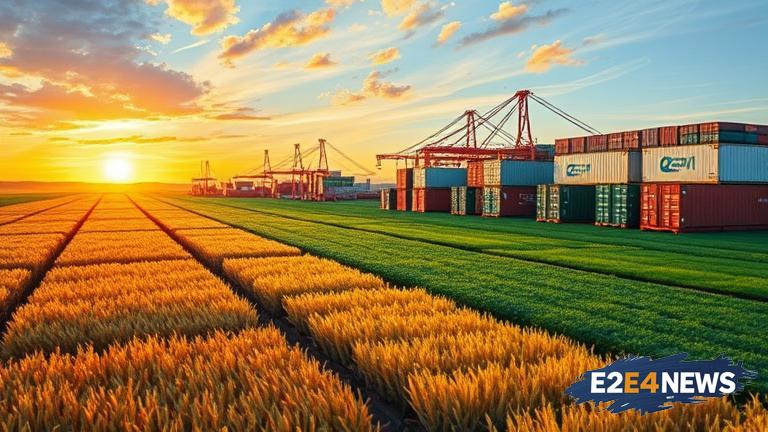The Agribusiness Australia event, a premier gathering for the country’s agricultural sector, recently explored the intricacies of global trade and tariffs. With the Australian agricultural industry being a significant contributor to the country’s economy, the event aimed to provide insights and solutions for navigating the complex landscape of international trade. The event brought together industry experts, policymakers, and stakeholders to discuss the impact of tariffs and trade agreements on the sector. Keynote speakers highlighted the importance of understanding the nuances of global trade, including the implications of Brexit, the US-China trade war, and the ongoing negotiations for the Regional Comprehensive Economic Partnership (RCEP). The event also examined the role of technology in enhancing trade efficiency and reducing costs. Furthermore, discussions centered around the need for increased investment in agricultural research and development to drive innovation and competitiveness. The Australian government’s trade policies and their effects on the agricultural sector were also scrutinized. Additionally, the event touched upon the significance of maintaining high-quality food standards and the challenges posed by non-tariff barriers. The importance of building strong relationships with trading partners, such as China, the United States, and the European Union, was emphasized. Moreover, the event explored the potential of emerging markets, including those in Southeast Asia and the Middle East. The impact of climate change on global food systems and the need for sustainable agricultural practices were also addressed. In terms of specific commodities, the event discussed the outlook for wheat, barley, and canola exports, as well as the opportunities and challenges facing the livestock sector. The role of free trade agreements, such as the Australia-United States Free Trade Agreement and the Comprehensive and Progressive Agreement for Trans-Pacific Partnership (CPTPP), in shaping the country’s agricultural trade was examined. The event concluded with a call to action for the industry to work together to address the challenges and capitalize on the opportunities presented by global trade and tariffs. Overall, the Agribusiness Australia event provided a valuable platform for the industry to engage with key issues and develop strategies for success in an increasingly complex and interconnected world. The event’s focus on global trade and tariffs reflects the sector’s recognition of the need to adapt to changing market conditions and to capitalize on new opportunities. As the Australian agricultural industry continues to evolve, events like Agribusiness Australia will play a crucial role in shaping its future. The industry’s ability to navigate the complexities of global trade and tariffs will be essential in determining its long-term success. By providing a forum for discussion and knowledge-sharing, the event helped to foster a sense of community and cooperation among industry stakeholders. This sense of cooperation will be vital in addressing the challenges and opportunities presented by global trade and tariffs. In the coming years, the Australian agricultural industry will need to remain agile and responsive to changing market conditions, and events like Agribusiness Australia will be essential in facilitating this process.
